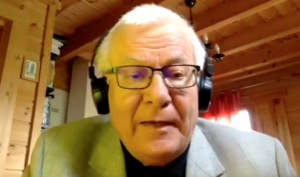 The use of nuclear technology relies heavily on the accumulation of knowledge. This includes technical information in the form of scientific research, engineering analysis, design documentation, operational data, maintenance records, regulatory reviews and other documents and data. It also includes knowledge embodied in people — e.g. scientists, engineers and technicians. Effective use of nuclear knowledge thus involves ensuring the continued availability of essential reservoirs of both technical information and qualified people.
The use of nuclear technology relies heavily on the accumulation of knowledge. This includes technical information in the form of scientific research, engineering analysis, design documentation, operational data, maintenance records, regulatory reviews and other documents and data. It also includes knowledge embodied in people — e.g. scientists, engineers and technicians. Effective use of nuclear knowledge thus involves ensuring the continued availability of essential reservoirs of both technical information and qualified people.
Today nuclear knowledge resides in governments, academia, and industry, i.e. encompassing administrative bodies, companies, research and educational institutions, individuals and retirees. The entire inventory of nuclear knowledge today exists in different forms and formats, ranging from recorded and/or stored nuclear information on different media to tacit knowledge in nuclear professionals’ mind.
The virtual meeting on Managing Nuclear Knowledge for Safety and Sustainability organized within the Ener-Connect initiative was held on 28 May 2020. The speaker, Dr. Yanko Yanev, Managing Director of the Nuclear Knowledge Management Institute (NKMI) and former head of the IAEA’s Nuclear Knowledge Management Programme focused on the objectives and the logic of “nuclear knowledge management”, its evolution, current status and possible future development. The discussion was around why knowledge management was critical in nuclear activities and especially for nuclear safety, what was still missing and how nuclear knowledge management would be developed in the future. During the Q&A session participants addressed issues on implementation of knowledge management in their organizations and asked how to be better prepared for activities in this area.
The virtual meeting was attended by 85 participants from Argentina, Armenia, Austria, Bangladesh, Belarus, Belgium, Brazil, Cameroon, China, Egypt, Ethiopia, Finland, Germany, Ghana, Hungary, Italy, Japan, Jordan, Kenya, Morocco, Nigeria, Pakistan, Philippines, Romania, Russia, Senegal, South Africa, Sri Lanka, Tanzania, Tunisia, Ukraine, UK, USA, Zambia and Zimbabwe.
The Ener-Connect has been established following to the Collaboration Agreement among regional educational networks AFRA-NEST, ANENT, ENEN, LANENT and STAR-NET. It consists of academics, scientists, and engineers interested in the peaceful use of nuclear energy. The Ener-connect goal is to create collaborative opportunities between researchers, academics, and students in Europe and their peers in Africa, Asia, Eurasia, Latin America, and the Middle East.
Some changes have been made to the Ener-connect website. This was done to make it easier to find content. A red button has been placed on the front page of the ener-connect website that will take directly to the next scheduled webinar. Dr. Yanev’s recorded event and the latest recorded webinars can now be watched from the front page of the ener-connect website. In addition, all webinar recordings have a dedicated web page where you can easily find past recordings. Soon a new “archive” page will be available for the full content of all past webinars.